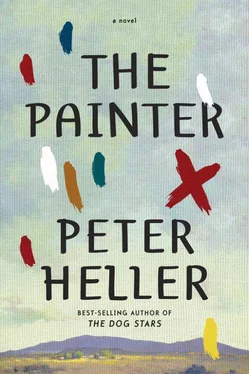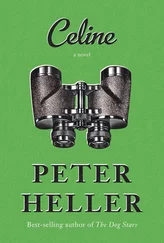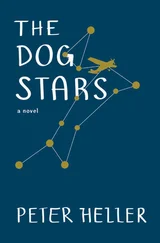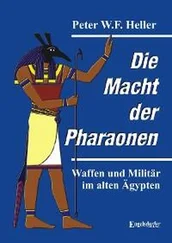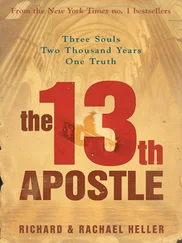“Yeah, sure.”
“Think there’s a Coke in there?”
“Probably.”
“We could use one.”
He went to the mini fridge, pulled out two Cokes, cracked them, handed me a blessedly ice cold can. I drank half of it in one gulp.
“Grant took off Tuesday. Headed this direction. Sheriff had him at the Delta County line, then a witness saw his truck going through Saguache. Hard to miss a diesel two tone blue F-250 with a gooseneck hitch and spotlight. No reason for him to come this way except to come after you. A dangerous man, very pissed off, already threatened you once. Why I’m here.”
“You’re worried about me.”
He smiled. “Right now I think I’m more worried about him. You look like you want to hurl. Want me to call reception and get you some Pepto?”
“No.”
“I take these.” He pulled a prescription pill bottle out of his jacket pocket, twisted off the cap, tipped the bottle up like a can and shook some into his mouth. “Sad thing is even a Coke can give me acid reflux. Sucks being fat.” He smiled.
“Mr. Stegner.”
“Call me Jim.”
“It can eat at a man. The stuff we do. Secrets make you sick, isn’t that what we say?”
“Being in prison makes you sick.”
He nodded. “You have no idea where Grant Siminoe might have gotten to?”
“Wherever it is, I’m sure it sucks. I’m sure it’s no fun at all within about a three mile radius.”
He nodded. He dug in the pocket of his overcoat, pulled out a piece of clear plastic. He held out his palm.
“This belong to you?”
It was a small Visqueen envelope with a dry fly in it. A number 18 hook, tufty elk hair wings and an orange body made with strips of baling twine. It was a Stegner Killer.
“Yes? Take it, take a closer look. None of the fishermen we interviewed had ever seen one in these parts, but somehow you’ve got a shitload of them in your fishing vest. Excuse my French. Ten or twelve. And a couple on your kitchen counter. Must catch a lot of fish.”
He stared at me.
“That yours, Mr. Stegner?”
“I’m not sure. Probably.”
He nodded.
“Think you can patent something like that? I mean if it’s just head and shoulders better than anything else?”
That twist in the guts. A sharp pain in my stomach that cut through the queasiness.
“Forensics found this by the creek,” he continued. “Right where Dell was bobbing in the water. They missed it the first morning, but there it was in the second sweep, wedged in the sand between two rocks, right there, like a marker.”
“I fish that stretch all the time,” I said weakly.
“We know that,” he said.
“It’s funny,” he said, standing, wheezing with the effort. “The longer I do this, the less I’m sure who the bad guys are. Ever feel like that?”
His candor landed on my shoulder like a lost bird.
“Not really. I have a pretty good idea who’s really bad.”
“I found something else in my travels,” he said. “Something I read.”
He brought two folded pages out of his inside jacket pocket. Handed them to me in the chair. I took them, my hand was shaking a little, I unfolded them, read:
She had the bag. I say to Hen, “Hey, Bug uses those black bags.” “Fuck Bug. Let’s grab it,” Hen says. I say, “You fucking grab it.” He says, “What’re you afraid of pussy? She’s about the size of a Chihuahua.”
I gagged. She was Alce. It was the transcript, from the DA in Taos. I’d read it before, three years ago. Alce coming at them with her bag of pot. I read it now. The whole thing. It was the last thing I wanted to do and I couldn’t help myself.
She went to buy an ounce of pot. Something any kid might do. That last year she started skipping school. Began dating a druggy. One afternoon the manager of the pharmacy off the plaza called to say that Alce was in the office, could I come pick her up, she had been caught shoplifting. Beto Salazar went to school with Cristine, he wasn’t going to call the cops, but could I please get the girl to just apologize. She never did. She walked out of there tight-lipped and proud. The next time the sheriff Finn drove her. Then the meeting with the vice principal, the slipping grades. Her smoldering silence. Cristine and I were too caught up in our own fighting and our own work to offer much in the way of radical change at home.
Then she came to me to ask if she could have a cell phone and I unloaded on her. Thinking about it later, I saw that she was trying to talk to me. Trying to tell me about her first boyfriend and the stuff they were into, trying to get me to help her sort it out, and I just unloaded on her.
That week she went to buy pot from Bug and there was another buyer in the parking lot, parked at the south end in the mouth of an alley. Two. Two men in their twenties waiting. One described the whole thing to the DA, the one who hadn’t been stabbing, he dished it for a lesser charge. The big one got out of the car and grabbed her bag and she wheeled and roundhouse kicked him in the face and he went berserk. He cut her all over. The coroner said her right hand was cut nearly in half: she had been holding the blade. The men fled and she bled out, there in the alley.
She died because she fought back. Like she’d seen me do her whole life. Throwing caution and sense away and hitting the fuckers. Like her old man. Fuck the fuckers, fuck the ER, fuck the cuts and concussions—strike. How else was she supposed to react?
She died because she was just like me.
And what if she’d had the cell phone she’d asked me for? What if she could have called for help from the alley? How long had she lain there? I always wondered. I could feel Wheezy watching me. I couldn’t read the rest and I couldn’t not keep reading. She died in the ambulance, what they told me. Choking and trying to tell them her mother’s phone number.
I let the pages drop.
“I get it,” Wheezy said. “Why you’d do almost anything to protect a little beaten horse. We hardly ever get it right the first time around. Don’t even kill maybe the one that really needs killing.”
Wheezy nodded, looked at me with real concern. “Thanks for the Coke. Don’t get up, I’ll let myself out.” He smiled sadly at me, wheezed.
“What we always say in the movies. Back to the script at the end,” he said and left.
Vertigo. What time was it? Would this day ever end? Time did that thing it does, when it uncurls and lengthens like a rattlesnake patiently sliding after a mouse.
I reached for a plastic lined wastebasket next to the wall and vomited into it. As I threw up I ejected the images. Shut and locked the steel doors behind them. What the fuck else did he know, Wheezy? He knew I had failed as a father, what else was there?
I leaned over and vomited again. Nothing but Coke. When the Coke was gone I gagged and heaved. The world splits open when you vomit, you kind of untether in space, get tiny as a mote. A baby. Why there is such an impulse to be held, held down, embraced. Well. There was no one here to hold me. I convulsed. Mom! A grown man still cries the word. That was something Mom always understood. When we threw up she just came behind us and cradled us in her arms and whispered it’ll be okay, it’ll be okay, and stroked our foreheads.

When my father died, I orphaned myself. My sister had already graduated high school, married her boyfriend, and moved down to Santa Rosa. Mom was tall and strong and people said beautiful. She loved my father fiercely I am sure and she cursed him his carelessness. How could he let himself be cut down in the prime of both their lives? It was the measure of her loss, I think, that determined the fury of her renunciation. I understand that now. But not then. She wept and cursed and drank and I came home from school on my bike one afternoon and found a big pickup in the yard. I was sixteen. I knew the truck. It belonged to Gus Hebert, Dad’s foreman. Not just the boss of the cutters, but the ops guy for an entire lease—roads, cutting, transport—a compact, hard man who had worked his way up from choke setter as a teenager. I’d met him before, and I could tell that if Pop didn’t exactly like him, he respected him.
Читать дальше
